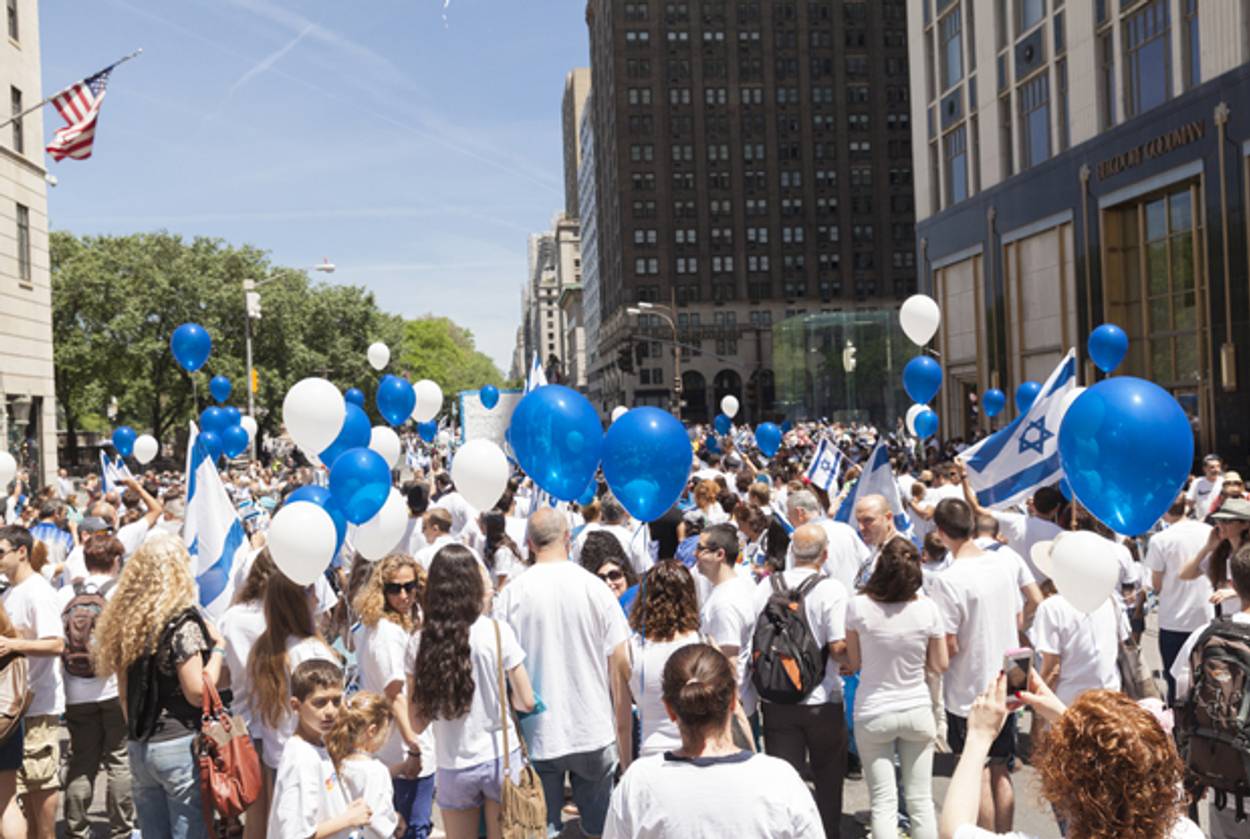The Road to the New Jerusalem, Part 2
If Israel and the Holocaust are most Jews’ points of identification, which holidays are really the High Holidays?




Earlier this summer, my brother-and-sister-in-law made aliyah. To say the timing was poor would be a dramatic understatement. Objectively, the timing was terrible.
Granted, there’s never a very good time to move to Israel, or go there, even: The same way an observant Jew might mark time by the holidays (he was born around Purim, she was married by Hanukkah-time), a visitor to the Holy Land generally recalls his stay by the conflict that was raging then (I was on Birthright during the Gaza pullout; on our last visit they were drilling for possible gas attacks from Syria).
This time there are rocket attacks. In the absence of a more rational option, we download an app that alerts us to let us know when they are.
The weekend after Ari and Sarah moved, my husband and my youngest brother-in-law and I took the bus to Hartford, Conn., to visit my aunt and uncle and two of my cousins and to spend a long weekend in their pool, where all seven of us were early Friday afternoon—already Shabbat in Israel—when all seven of our phones began alarming in unison, wailing this mournful, urgent sound.
For a moment, everything stopped. This was very early in the conflict, when you could still number the dead in your hands. When you could still be afraid every time rockets fell, when we still thought about calling even though Ari and Sarah are Shomer Shabbat. For a moment, my husband thought only of his brother, my brother-in-law, only of his friends being called up from the reserves, I about my reporter friends already posting Gaza selfies on Instagram. In the absence of a more rational option, we prayed for them.
For almost half of American Jewry, this is what it means to be Jewish. Not so much the praying—if you haven’t installed the app, Googling the right tehilim to say on such an occasion requires whole minutes you could be antagonizing BDS’ers on Twitter—because many of us were never taught to pray, not spontaneously the way one does in the throes of illness or sudden terror, gratitude or grief, or any other emotion with existential weight behind it. Bless her heart, Debbie Friedman’s songbook has little to offer the higher registers of human feeling.
Instead, we outline our share in Judaism’s communal suffering and take positions around it. Roughly 75 percent of American Jews say remembering the Holocaust is an essential part of being Jewish, while more than 40 percent say caring about Israel is the core of our identity. By contrast, fewer than 30 percent believe it’s necessary to be part of a Jewish community. Fewer than 20 percent think it has anything to do with Jewish law.
Once, being a two-day-a-year Jew meant observing Rosh Hashanah and Yom Kippur. Now it means Yom Ha’Atzmaut and Yom Ha’Shoah.
This essay is excerpted from ‘My Journey to the New Jerusalem,’ a story about one woman’s search for a new kind of Jewish community. The article, which Tablet will publish on September 22, was written and edited in collaboration with The Big Roundtable.
Sonja Sharp is a novelist and reporter of crime and culture in New York City. She teaches news writing at the Columbia University Graduate School of Journalism, and her stories have appeared in the Wall Street Journal, VICE, the New York Times, The New York Daily News, Mother Jones, and elsewhere.